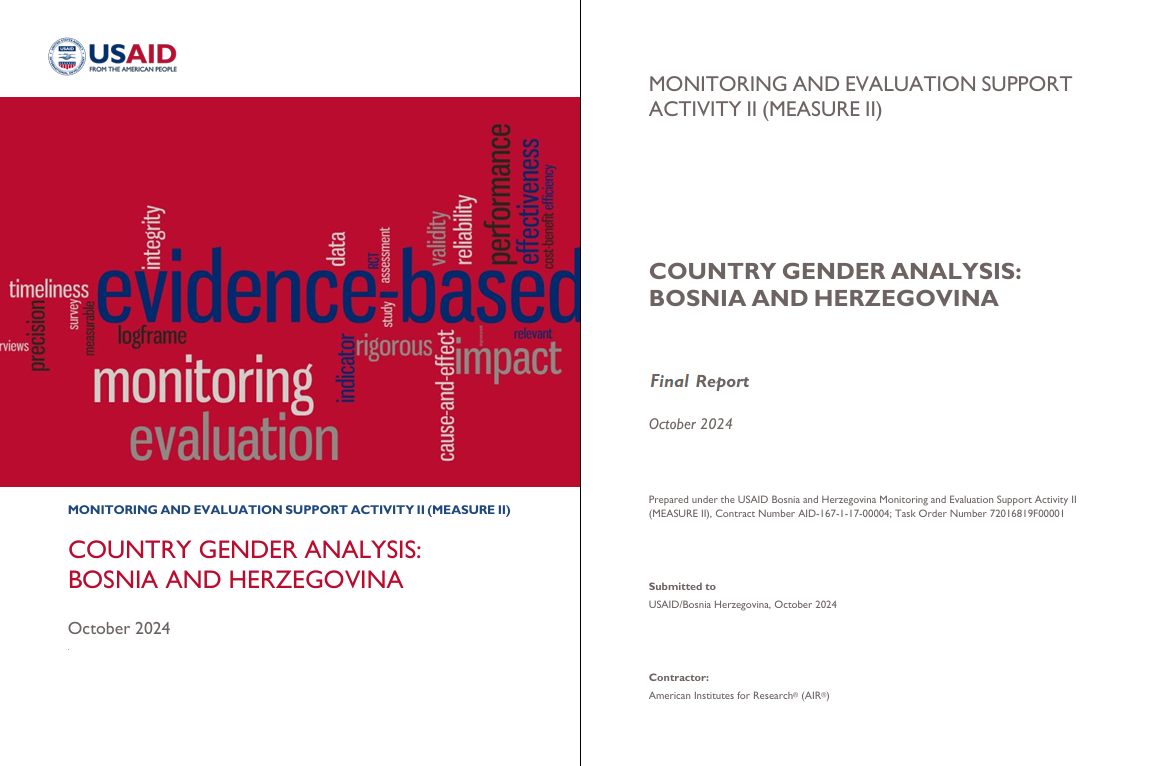
COUNTRY GENDER ANALYSIS: BIh 2024
|
Upon request of the United States Agency for International Development/Bosnia and Herzegovina (USAID/BiH), its Monitoring and Evaluation Support Activity (MEASURE II) project conducted a gender analysis to inform USAID/BiH’s programming across 20 sectors/areas. Using a mixed-methods approach, the analysis revealed that BiH lags behind other European Union (EU) candidate countries in gender equality policies and practices. Key issues include inadequate gender-specific measures, lack of sex disaggregated indicators, and insufficient reform implementation. Local regulations, especially in the FBiH, are outdated and fail to enforce the BiH Law on Gender Equality . Discrimination against marginalized women persists, with local institutions lacking the capacity to address these issues effectively. Women’s representation in decision making remains below the mandated 40 percent, with substantial underrepresentation in sectors like energy, security, forestry, and finance. Gender roles continue to influence women’s economic activities, with household duties predominantly falling on women. Access to the labor market is hindered by inadequate care services, and women face challenges in accessing finance, high-paying jobs, and decision-making positions. While cultural norms are slowly shifting, broader changes in gender-related attitudes are limited, especially among men and older generations. To address these challenges, donors should require comprehensive human rights and gender analyses in all institutional support initiatives, engaging gender institutional mechanisms, human rights institutions, and women’s and other marginalized population organizations. |
|
Donors should mandate companies to adopt anti-discrimination and gender equality standards. Support for political parties should include gender-responsive policy advocacy and training for party leadership on gender integration. Donors should focus on advocacy capacity strengthening among women’s and minority women’s organizations, prioritizing online campaigns targeting younger generations and men. Improving coordination among donors in sectors like media and local self-government, and engaging Roma communities, is essential to ensure gender and human-rights-responsive interventions. The final report is available below: Click on the image above to download the report |





